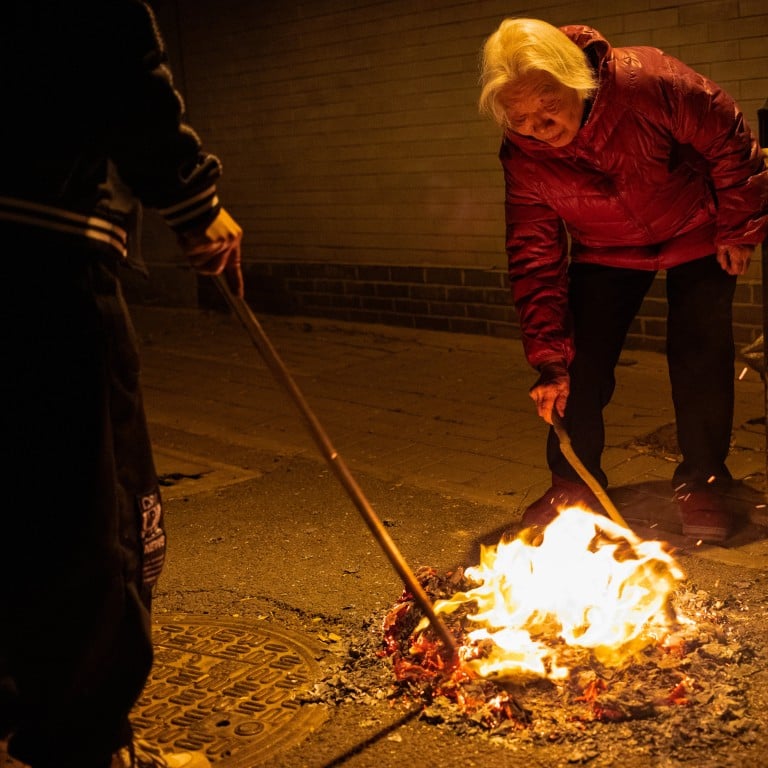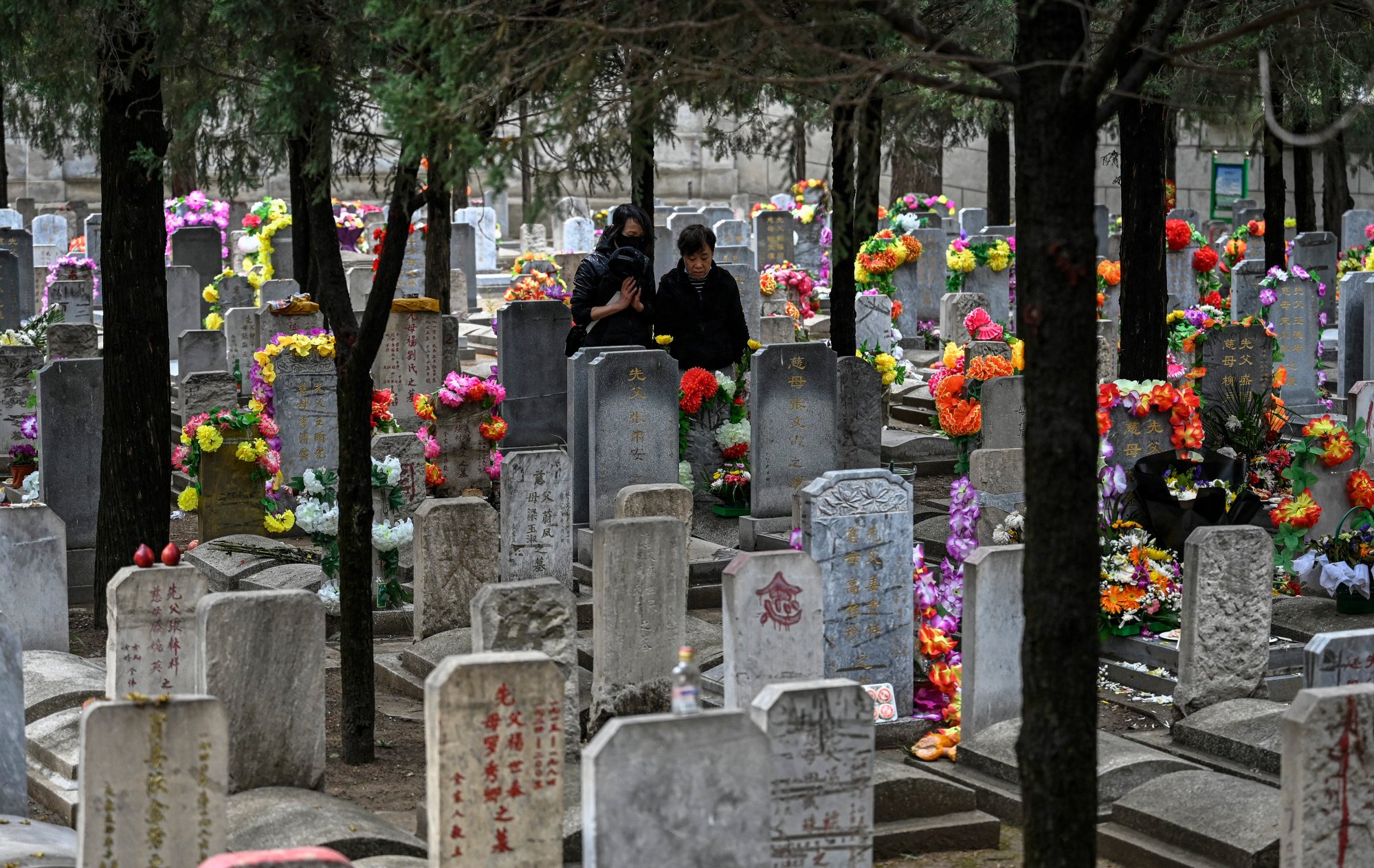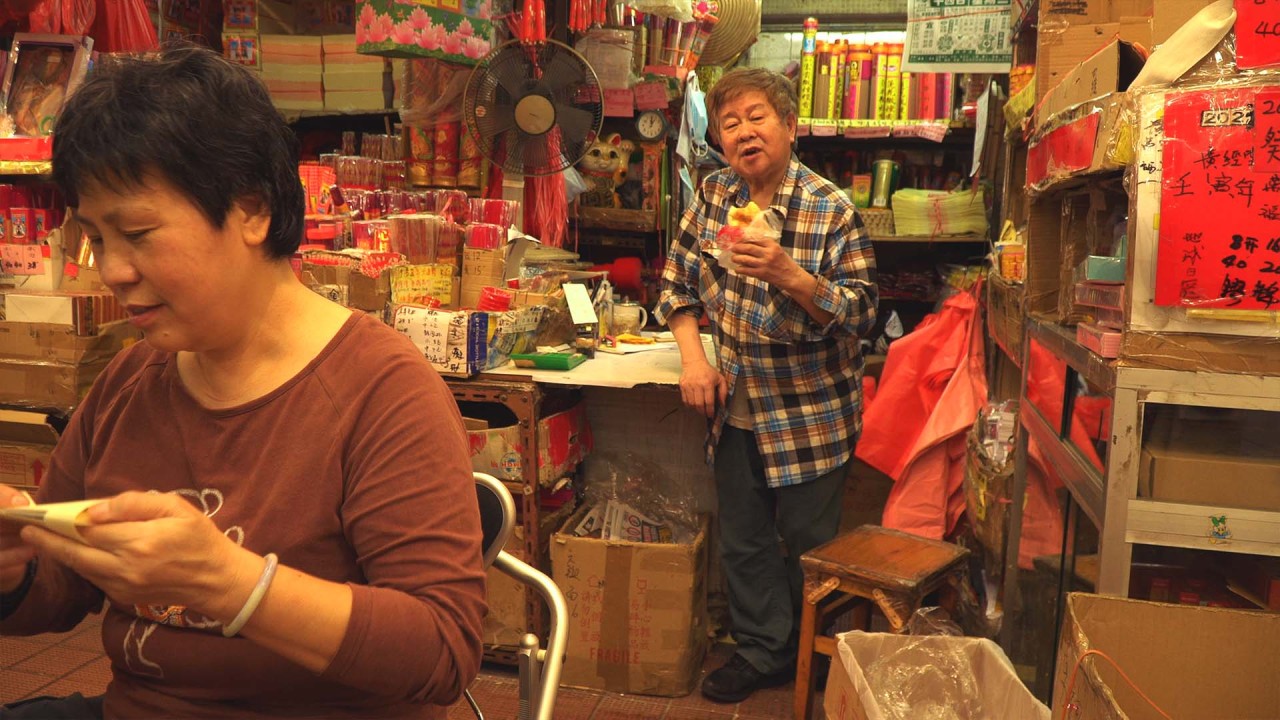
Chinese cities spark outcry with ban on joss paper sales and ‘feudal superstitions’ for Ching Ming Festival
- Local governments prohibit sale and production of joss paper, spirit money and other offerings used in ancestor worship during tomb-sweeping day
- While a national ban has long been in place, viral announcement by east China city revives debate over folk customs and rituals
The ban aims to “promote funeral and burial reforms” and advocate for “civilised” customs and practices, according to an announcement released last week.
The city warned of fines, administrative penalties and even criminal prosecution for those found violating the rules.

Offerings typically include traditional food dishes and the burning of joss sticks, incense paper, and paper replicas of items such as mansions, cars, and luxury bags for ancestors to use in the afterlife.
This is not the first time authorities have targeted Ching Ming rituals with bans or other restrictions.
China’s cabinet, the State Council, banned manufacturing and sales of joss paper and similar items in 2012, when it revised the country’s funeral management regulations. Local governments then revised their own policies based on the national rules.
However, these prohibitions went largely unnoticed by the public until Nantong’s announcement on WeChat a week ahead of this year’s holiday, which fell on Thursday.
The announcement sparked an uproar on Chinese social media with many users defending the preservation of folk customs and objecting to what they saw as a one-size-fits-all regulation.
“[The authorities] talk about preserving culture and traditions … while they keep imposing bans on this and that,” one commenter wrote on the Chinese social media platform Weibo. “Future generations will have no idea what the true and normal traditions are.”
Another said: “Some [traditions] still need to be complied with, and it is the only way we can find solace to express our longing for departed loved ones.”
In 2021, Nantong recorded a total of 210 incidents related to the holiday, including 121 fires, according to an article published by city authorities that year.
Lunar New Year fireworks: even a beloved tradition can’t ignore safety
Heyuan in Guangdong province, Xunyang in Shaanxi province, and a district of Ezhou in Hubei province also announced prohibitions this year.
In addition to banning the production and sale of ritual supplies, some governments have prohibited mournful music, the burning of joss paper, the construction of mourning halls and displaying of corpses in public.
Following the ban, Nantong authorities urged people to honour the dead “in a modest and non-extravagant manner, using simple and plain methods” and to adopt environmentally friendly practices.
“[We should] integrate the remembrance of the deceased with the promotion of exemplary family values, shifting the focus from physical tomb-sweeping to spiritual inheritance, and consciously resist feudal superstitious practices and advocate for a civilised new culture,” they said.
The ban prompted a dissent from the country’s state-run media, with China National Radio calling the measure “too crude and heavy-handed”.
“In people’s everyday perception, burning joss paper is just one aspect of tomb-sweeping, similar to offering flowers as an expression of remembrance. It cannot be regarded as a feudal superstition,” the radio network’s news channel said.
“This kind of management is rigid, impractical, and lacks human touch. It should be treated with caution.”
An official from the Nantong Municipal Civil Affairs Bureau said the ban was issued in the interest of “spiritual civilisation construction and environmental protection” and was based on relevant laws and regulations, according to China National Radio.
“It is unrelated to the solemn remembrance and respect that people have for their ancestors,” the official said. “We emphasise the prohibition of manufacturing and selling in terms of market behaviour, but there is no mention of prohibiting the use.”
Hu Xijin, former editor-in-chief of the nationalist tabloid Global Times, wrote on Weibo that regulating the use of joss paper and restricting burning sites was understandable and also “clearly different from a complete ban”, which would be “too harsh and abrupt at the current moment”.
Vivian Zhan Jing, a political scientist at Chinese University of Hong Kong, said the bans “may be motivated by some local governments’ calculations, or miscalculations, under the pressure of fulfilling multiple policy goals” such as environmental protection, public safety, and promoting new funeral norms.
Liu Dongshu, a political scientist at City University of Hong Kong, said that for local governments in China, it was “relatively politically safe” and “administratively the easiest choice” to use “feudal superstition” as an excuse for regulating ritual practices.
Under its atheistic political system, China also has its own established political narrative regarding “feudal superstition”, considering it to be incorrect and uncivilised, he said.
Mainland China rail services return to normal a day after Taiwan earthquake
“However, this forms a fundamental contradiction with the people’s deep and extensive demand for folk customs … and it is difficult [for local governments] to draw a line between acceptable practices and those that are ‘too much’,” he said.
“When faced with such complex matters, they chose to simply ban it altogether,” he said.
Liu added that local governments are required to take responsibility for everything within their jurisdictions, but given the limited resources, they tend to focus only on matters that will affect their political records.
He also said the local policies were unlikely to be strictly enforced.
“They have to make public statements and pledges so that if anything happens, it would not be their responsibility. They may exercise some flexibility in their actual implementation.”


